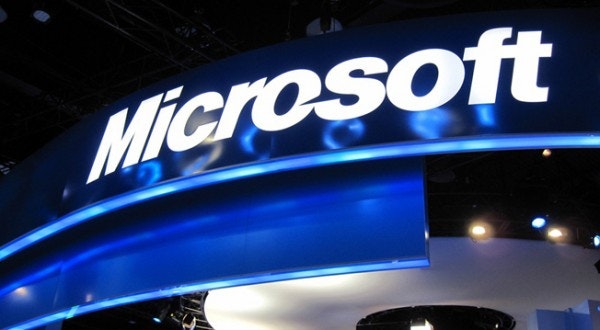Microsoft Corporation (NASDAQ:MSFT)’s CEO, Steve Ballmer once said, “The launch of Windows 8 is the beginning of a new era at Microsoft Corporation (NASDAQ:MSFT). Investments we’ve made over a number of years are now coming together to create a future of exceptional devices and services, with tremendous opportunity for our customers, developers, and partners.”

All of that sounded great when I first heard it. But many Wall Street analysts never bought into the hoopla. And, as evidenced by the disappointing sales figures for Surface and Windows 8, it seems consumers never really “bought it,” either.
Clearly, Microsoft Corporation (NASDAQ:MSFT)’s desire to reinvent itself is not going as well as the company had hoped. In fact, I’m not holding my breath to see any drastic changes in the foreseeable future. For that matter, neither is the Street.
Aside from the fact that there’s a gross dislike for the company’s management by analysts, proud supporters of Microsoft have begun to lose patience. Microsoft Corporation (NASDAQ:MSFT) is still getting punished because it’s not Apple Inc. (NASDAQ:AAPL), a company whose hardware focus has led to vast growth in the past decade. Fairly or unfairly, that’s reality. Unfortunately, management has fallen prey to this.
While the company has been trying to be what the Street wants it to be, Microsoft Corporation (NASDAQ:MSFT) has made the mistake of taking its eye off what it’s truly good at. Microsoft now wants to be a hardware company, and thinks it can take Apple Inc. (NASDAQ:AAPL) and Samsung head-on.
Unfortunately, the company is making this transition when everyone else has begun to realize that “software is the new hardware.” Even Cisco Systems, Inc. (NASDAQ:CSCO) has begun to shed its hardware dependence, and is now evolving toward software-defined-networking. Just imagine if Microsoft was able to capitalize on its software expertise to get into the networking business.
Microsoft Corporation (NASDAQ:MSFT) would be able to control the operating systems and the data that travel across network enterprises. While Cisco Systems, Inc. (NASDAQ:CSCO) would still remain dominant, Microsoft would be a legitimate threat. All Microsoft would have to do is pick-off one of Cisco’s chief rivals. F5 Networks, Inc. (NASDAQ:FFIV) or Juniper Networks, Inc. (NYSE:JNPR), which has been trying to sell off some assets and is led by a former Microsoft executive, might be great targets. Microsoft has already had some success in virtulalization, and we see its main rival in the space, VMware, Inc. (NYSE:VMW), making its own moves into software-defined networking.
Then again, this is Microsoft’s management we’re talking about here. Ballmer would not dare do something so drastic or game changing. Instead, the company prefers to focus on personal computers, which Microsoft still relies upon for 80% of its business. This is despite the fact that PCs are dying a slow death.
Meanwhile, the cloud market is projected to grow by $177 billion over the next two years. Here, too, Microsoft has appeared too slow to respond to the likes of Oracle Corporation (NASDAQ:ORCL) and salesforce.com, inc. (NYSE:CRM). Instead, Ballmer has been trying to fight Apple in tablets and phones – it’s not working. Interestingly, this is despite the fact that Apple’s Tim Cook just said the company was actually not a hardware company, and emphasized software and services.
Microsoft needs to wake up. Granted, it’s true that the company has made some progress in smartphones and mobile devices. But so has Research in Motion Ltd (NASDAQ:BBRY) and Nokia Corporation (ADR) (NYSE:NOK). And anyone who believes that either of these companies can put a dent in Apple’s lead is fooling themselves. Microsoft needs to go in a different direction.
Smart companies, like Oracle, which has recently picked off Acme Packet, Inc. (NASDAQ:APKT) aren’t afraid of taking risks and diversifying their assets. While Microsoft is able to boast solid cash flow, it does not have a reputation for effectively deploying its capital – at least not to the extent that it’s able to produce the growth that Wall Street craves.
As much as I’ve valued Microsoft’s influence on tech, I’m beginning to feel that I would love the company more if it were under new management, one that can change directions.
The article Microsoft’s Leadership Is Still Failing originally appeared on Fool.com.
Fool contributor Richard Saintvilus owns shares of Apple. The Motley Fool recommends Acme Packet, Apple, Cisco Systems, F5 Networks, and Salesforce.com. The Motley Fool owns shares of Apple, F5 Networks, Microsoft, and Oracle.
Copyright © 1995 – 2013 The Motley Fool, LLC. All rights reserved. The Motley Fool has a disclosure policy.